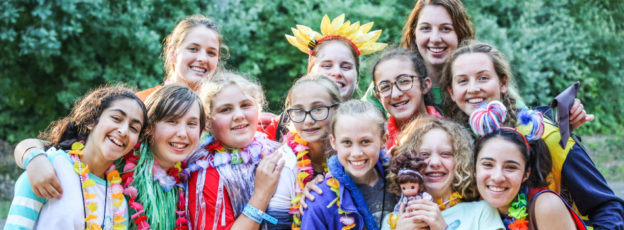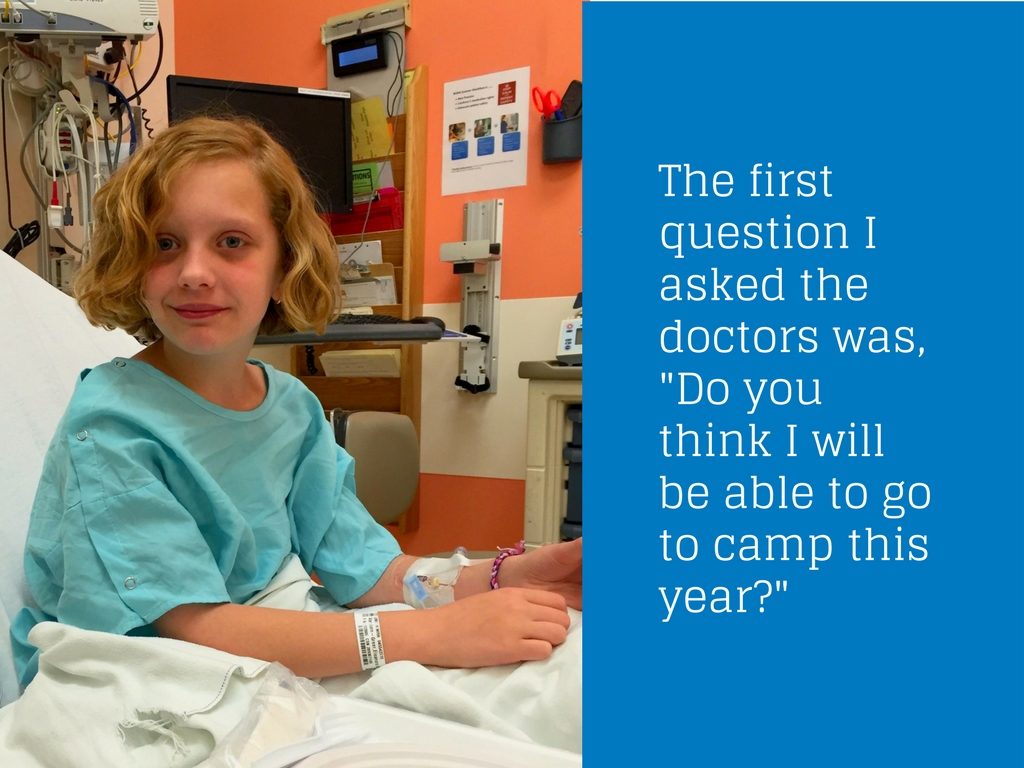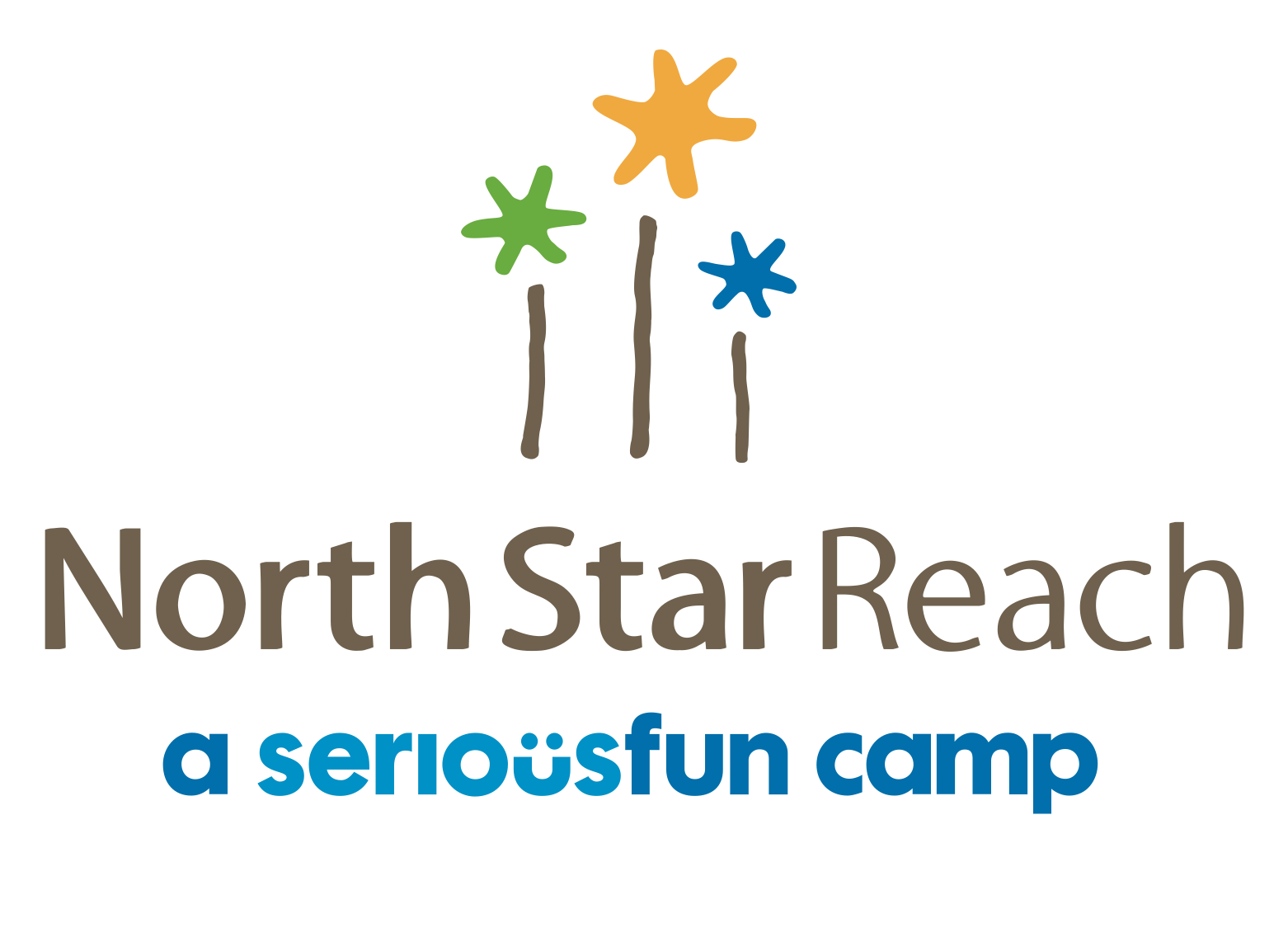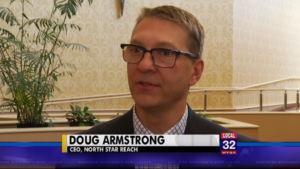Stories from around the campfire.
Discover fresh insights from our staff members, friends, and partners.
Or sign up for our newsletter to get the latest camp news straight to your inbox.
Join Our Email List
“Do you think I will be able to go to camp this year?”

Twelve-year-old Nora has attended North Star Reach for two summers, learning new skills, gaining confidence, and making friends with other kids who also have congenital heart disorders. “In just a short span of time,” she says, “I formed a lasting bond with all these kids who understand what I live with every day: they live with it too.” Nora is hoping to join her friends at Cardiology Camp in July following a surgery on her spine in June.
 In her own words, here’s what camp means to Nora.
In her own words, here’s what camp means to Nora.
My name is Nora and I’m 12 years old. I’ve been a camper at North Star Reach for two summers so far. I have had nine surgeries since I was two years old–on my heart, ears, spine and hands–and take medicine every day for chronic pain. I’ve also had a pacemaker since I was two.
When I tell people about my experiences in the hospital they are like, “Oh, that’s awful you poor thing!” And sometimes they don’t know what to say. But at camp I met Maria–she had holes in her heart like I did. I also met a few people who had little machines that kept their heart beating. In just a short span of time, I formed a lasting bond with all these kids who understand what I live with every day: they live with it too.
Camp at North Star Reach has given me confidence! It’s hard not to feel self-conscious about your stitches when you wear a bathing suit. But it’s not that bad, to be honest. At camp, I learned to fish. I sang on stage for the first time.
This June, I’ll have another surgery on my spine. The first question I asked the doctors was, “Do you think I will be able to go to camp this year?” I hope I can. I’m looking forward to meeting new people and seeing my friends from last year.
Though our camp feels like a traditional camp, behind the scenes is a state-of-the-art health center staffed by world-class doctors and nurses. North Star Reach also offers a Sibling Camp, for brothers and sisters of campers with a medical condition. Nora’s sister, Haddie, and brother, Fletcher, joined us last summer. The video below shows how camp has made a difference to their whole family.
If you’re inspired to help kids like Nora, Haddie and Fletcher attend camp at no cost to their families, please consider a donation.
News Spotlight: Unique Camp Design & Benefits to Pediatric Patients
North Star Reach CEO Doug Armstrong was in Traverse City recently sharing the origins of North Star Reach and camp design with architects from around the state. He was joined by lead camp architect Jan Culberston, senior principal at Ann Arbor-based A3C Collaborative Architecture, at the American Institute of Architects Michigan (AIA MI) chapter’s Annual Health Facilities Planning Seminar held at Grand Traverse Resort & Spa. The presentation gained coverage from CBS affiliate, 9&10 News.
“Camp gives kids the emotional, medical, and physical support needed to push beyond their limitations and boundaries and really get a sense of what they’re capable of,” Armstrong said. “We take kids where they don’t think they can go—and certainly where their parents don’t think they can go.” He cites research from Yale Child Study Center (2015) showing a correspondence between summer camp and improved health outcomes in children, including greater independence and self-esteem.
Partnerships with 12 leading children’s hospitals throughout Michigan and Chicago ensured North Star Reach was designed to optimally support campers’ special medical needs. Those partners also provide top-tier medical expertise during camp sessions, which include weeklong summer and weekend family camp programs. Campers can receive the care they need, all without ever leaving camp.
Presentation highlights included:
- History and need to design a medically sound camp from the ground up.
- Design challenges and solutions, including thoughtful spoke-like site plan on 105-acre peninsula, climate-controlled cabins, zero-entry pools, and completely accessible treehouse.
- Health Center (known as the Observatory) features, including open treatment spaces, trauma bay, overnight rooms and medical staff apartments.
You can view the presentation slides below.

